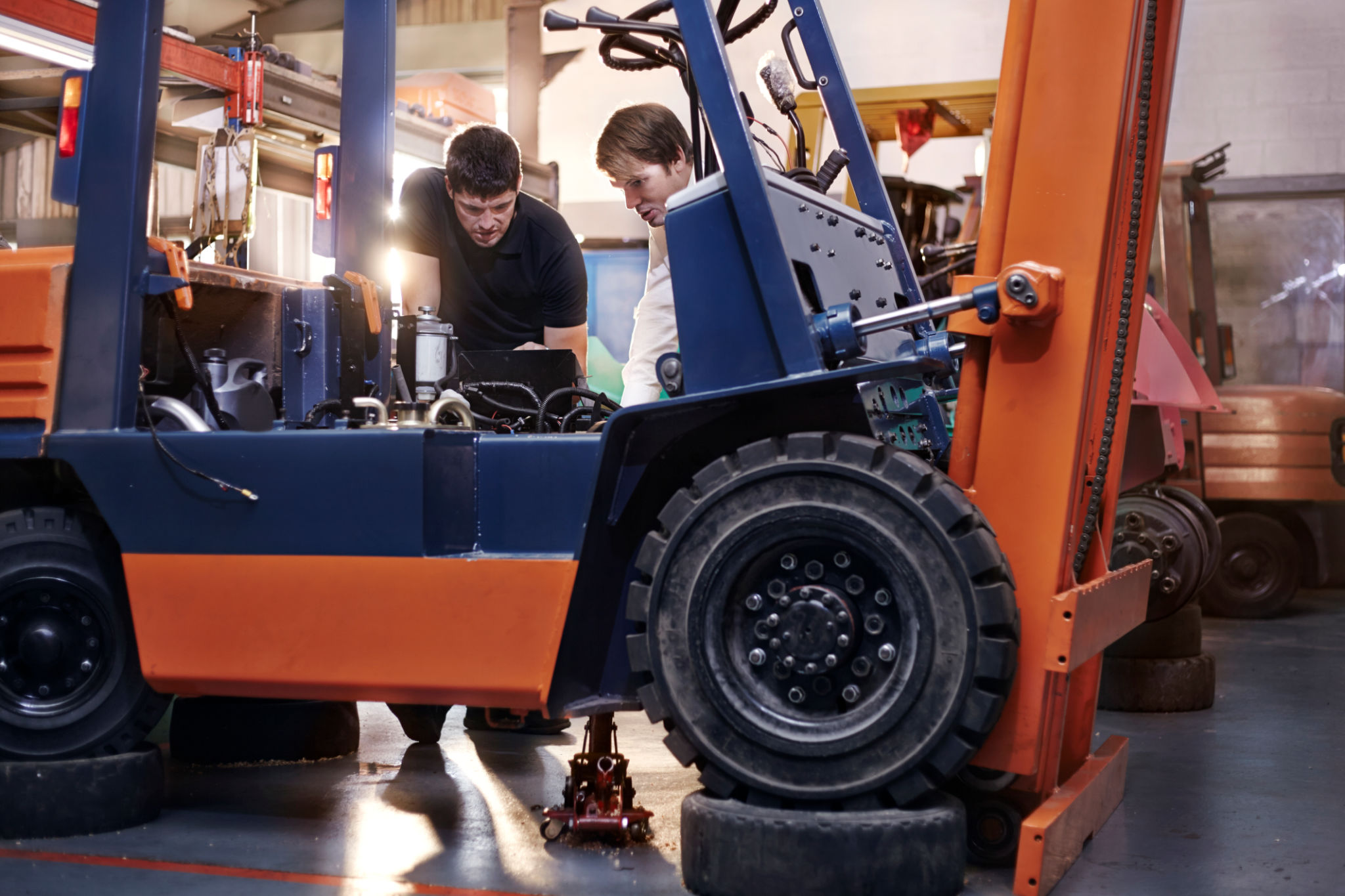Common Misconceptions About Forklift Maintenance and How to Avoid Them
Understanding Forklift Maintenance
Forklifts are essential in many industries, playing a vital role in moving heavy goods efficiently. However, the importance of regular maintenance is often overlooked, leading to misconceptions that can affect performance and safety. This post aims to debunk some common misunderstandings and provide guidance on how to avoid them.

Misconception 1: Forklifts Don't Need Frequent Maintenance
One of the most widespread misconceptions is that forklifts require minimal maintenance. In reality, these machines endure significant wear and tear due to their demanding tasks. Regular maintenance is crucial to keep them running smoothly and safely.
To avoid this mistake, establish a consistent maintenance schedule. Regular checks can prevent minor issues from becoming major repairs, saving time and money in the long run.
Misconception 2: Only Technicians Should Perform Maintenance
While it's true that certain aspects of forklift maintenance require professional expertise, basic checks can be performed by operators. Daily inspections by operators can detect early signs of wear and tear, such as tire damage or fluid leaks.
Encourage operators to conduct pre-shift inspections and report any irregularities. This proactive approach ensures that potential issues are addressed promptly.

Misconception 3: New Forklifts Don't Require Maintenance
There's a common belief that new forklifts don't need immediate attention. However, even new equipment can benefit from routine checks to ensure optimal performance from the start.
Implementing a maintenance plan from day one maximizes the lifespan of the forklift and ensures it operates efficiently throughout its life cycle.
Misconception 4: Maintenance Is Only About Fixing Problems
Many people think maintenance is solely about repairing faulty parts. In truth, maintenance is about prevention. By regularly servicing your forklifts, you can identify potential issues before they become significant problems.
Preventive maintenance includes tasks like changing oil, checking brakes, and inspecting hydraulic systems. These simple steps can significantly reduce downtime and repair costs.

Misconception 5: All Forklifts Have the Same Maintenance Needs
Not all forklifts are created equal. Different models and brands have unique maintenance requirements. It's essential to familiarize yourself with the manufacturer's guidelines for each specific forklift in your fleet.
Customized maintenance plans tailored to each forklift's needs will ensure optimal performance and extend their lifespan.
Conclusion
Avoiding these common misconceptions about forklift maintenance can lead to safer operations and more efficient machinery. By understanding the importance of regular checks, involving operators in basic inspections, and adhering to manufacturer guidelines, businesses can keep their forklifts in top condition. Remember, proactive maintenance not only enhances safety but also improves productivity and cost-effectiveness.
